So Where Did The Wolverine Go Wrong? 'Logan' Director Mangold Tells All
He’s the best there is as what he does: Slashing his way through the world of mutant-filled cinema.
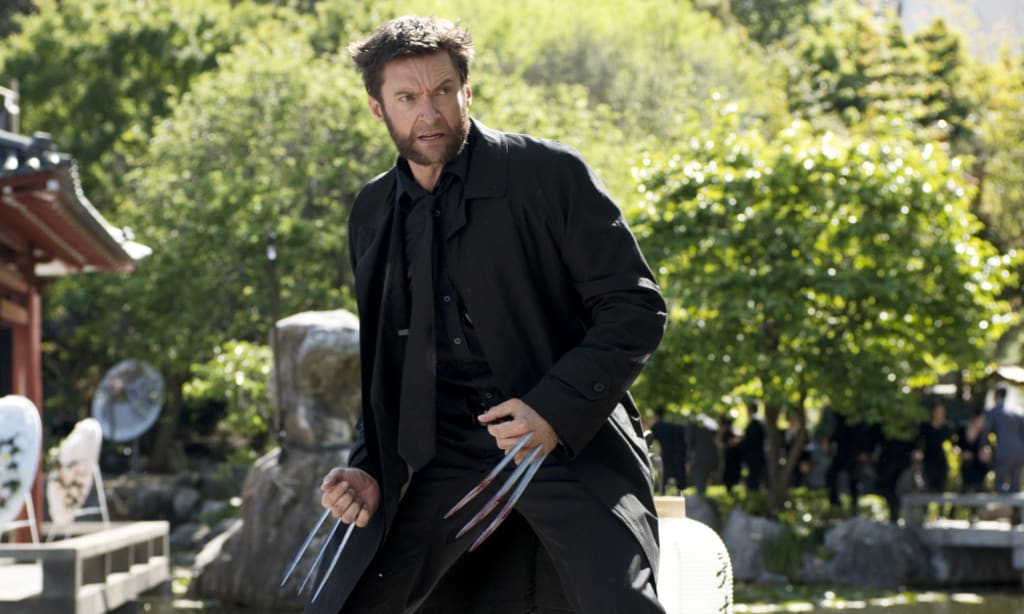
He’s the best there is as what he does: Slashing his way through the world of mutant-filled cinema. Logan, Hugh Jackman’s final outing as the iconic and infamously irritable mutant Wolverine, is already earning rave reviews, and this plethora of early plaudits are sure to translate to big takings at the box office.
Though Logan may be a stellar swan song for Jackman and co., fans are well aware that Wolverine hasn’t always had the strongest of solo outings. And it seems that even the movie-makers are aware of this. Logan director James Mangold also helmed The Wolverine, and in an interview with Den of Geek, he explains what it was that ailed his previous film.
Not Seeing Eye To Eye With CGI
Back in 2013, The Wolverine was welcomed as a better offering than X-Men Origins: Wolverine, which suffered from iffy writing and its notoriously dire handling of the character #Deadpool. But even though The Wolverine restored a lot of the titular character’s goodwill, it’s still an undercooked offering that does have some rather strange sections in it, including Svetlana Khodchenkova’s Viper and a particularly forced love affair. But surprisingly, Mangold doesn’t turn his berserker rage on those lesser aspects of his adaptation.
We all remember the bullet train sequence and that climatic battle with the Silver Samurai, don’t we? They were pretty thrilling fights for fans of the clawed protagonist. However, if we stop to think about them, we must admit one thing: They do stand out from the rest of the movie. The physics-defying train tussle and the bombastic third-act battle are at odds with the rest of The Wolverine, which adopts a more soulful, grounded aesthetic. Mangold explains that the reasoning for their inclusion was due to a simple yet irritating factor:
"The studio was really concerned that we have big, CG action to stay afloat against the other films we were up against."
So it seems that 20th Century Fox was preoccupied with enticing audiences to see The Wolverine through spectacular action scenes. But there isn’t anything inherently bad about this practice, is there?
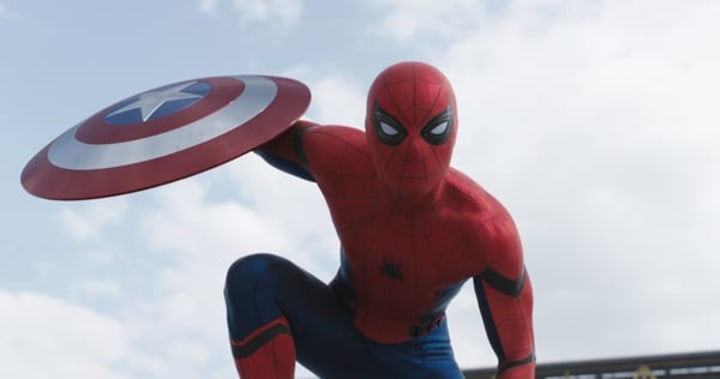
The moment that stopped a million hearts: Spidey in "Captain America: Civil War." [Credit: Marvel Studios]
A lot of other studios sell comic book movies with standout moments and sequences; remember how excited people were when they saw Spider-Man leaping into action in the trailer for Captain America: Civil War? And who didn’t love #Batman’s warehouse battle in #DawnofJustice? Without the two aforementioned fight scenes, The Wolverine may have been harder to market to the casual moviegoer who also had the effects-laden extravaganzas of Thor: The Dark World, Iron Man 3 and #ManofSteel to consider when deciding which movie ticket to purchase.
But Mangold is quick to point out that with the epic CGI brawls that films like Man of Steel boast:
"By the time we got to market, the very thing people were most tired of was the thing the studio wanted to make sure we had enough of."
Indeed, the showdown between #Wolverine and the Silver Samurai is one of the most heavily criticized aspects of The Wolverine because of its incongruous effects, its similarity to other comic book movies, and its total departure from what came before in the film. Simply put, it didn’t fit in and this reliance on bombast is becoming a bit of a bother to both the viewers and makers of superhero movies.
Suffering From Studio Interference
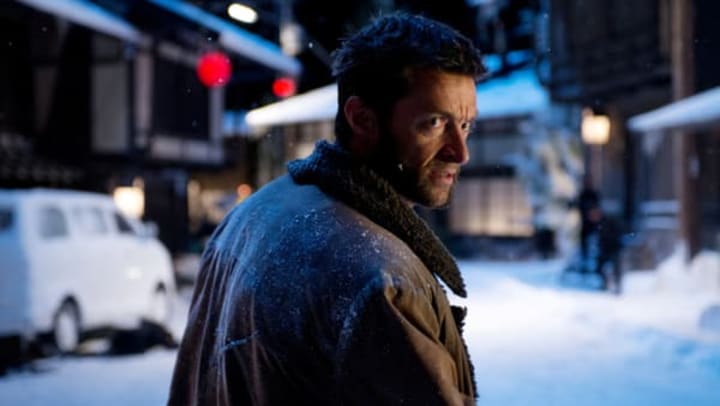
A moodier and more thoughtful Logan. [Credit: 20th Century Fox]
In his illuminating interview, Mangold states that:
"This kind of Japanese noir I was making, was almost our best asset."
And you know what? He’s right. The Wolverine may be overlooked when we discuss comic book films, but it’s unique in the superhero genre. It’s a thoughtful and subdued character study that, alongside Logan, is trying something that is different to many other superhero movies that increasingly risk becoming formulaic.
As much as we love them, the constant laser beams shooting up into the sky (see #TheAvengers, #Fant4stic, and #SuicideSquad) and CGI-heavy battles in the third acts are part of a trend that is on the verge of becoming wearying. Mangold even railed against them in a page of Logan’s script, which he posted online.
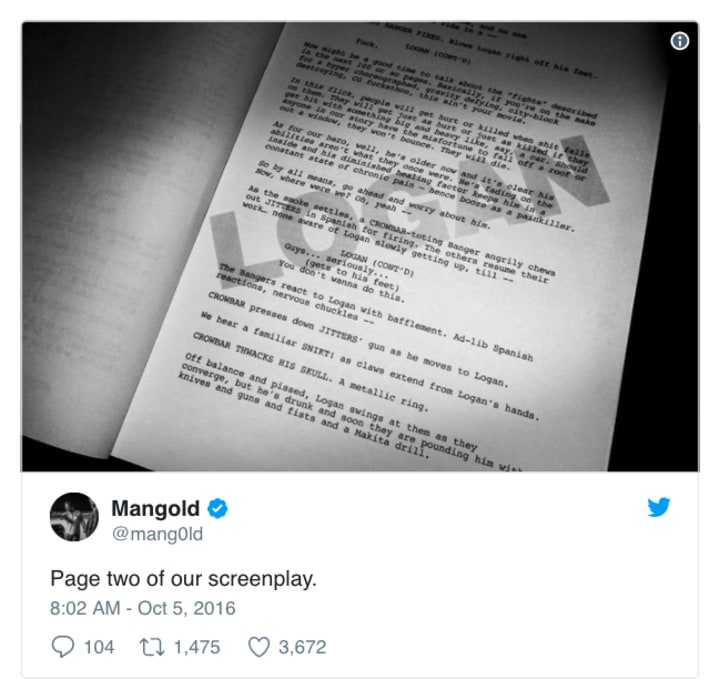
The prevalence of heavy CGI climaxes are causing backlashes both inside and outside the industry since the lack of tactility in the visuals draws our attention to their unreality and thus takes us out of the film.
Then, of course, there is the issue of Fox’s interference in the making of The Wolverine, which explains the changes made to the film. To many fans this will sound very familiar. The failings of Batman v Superman and #SuicideSquad are now heavily attributed to the meddling of Warner Bros. executives in the editing process.
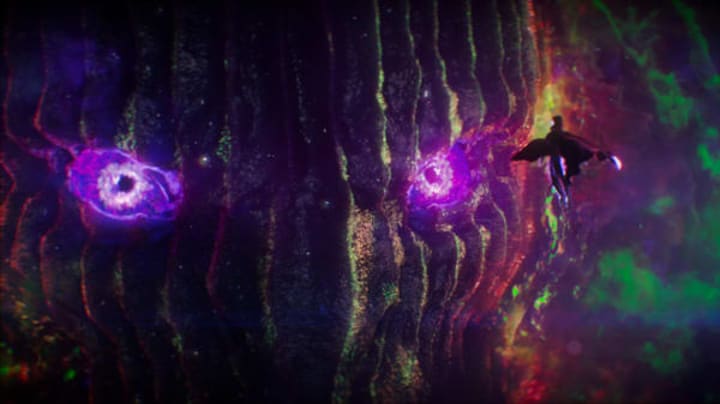
Doctor Strange confronts Dormammu. [Credit: Marvel Studios].
But this doesn’t mean that all is doom and gloom for superhero movies. Marvel’s head honcho Kevin Feige has continuously reiterated the studio's commitment to breaking new narrative ground. And we have already begun to see this push, such as in #CivilWar and Doctor Strange. Certainly, the latter may have been laden with special effects, but its final showdown cleverly subverted what we’ve come to expect from a superhero movie. Plus Mangold assures us that 20th Century Fox is learning from its past mistakes, especially after a change of staff in the upper levels of the studio:
"I do think there was a bit of a regime change at Fox, between the two movies. The people running Fox now have a clearer understanding that their audiences have changed."
It would seem that Fox is learning from the past. Mangold and Jackman’s push for an R-rated Wolverine seems to have paid off, and this can only be good news for us fans. Though not every superhero movie should be R rated, the experimentation with the conventions of superhero movies in Logan could be a game changer going forward. Indeed, its success may inspire other bolder attempts at adaptations of comic book properties.
After all, variety is the spice of life and the fresh twists in superhero movies will help to keep the genre going so that we can have even more movies featuring our favorite characters to enjoy. And though it took a long time to get there, with all these great reviews, it seems that we’ve finally got the great Wolverine movie that we wanted.
[Source: Den of Geek]
About the Creator
Max Farrow
A fanatical film-watcher, hill-walker, aspiring author, freelance writer and biscuit connoisseur.
These articles first appeared on Movie Pilot between Jan 2016 and Dec 2017. Follow me on Twitter @Farrow91


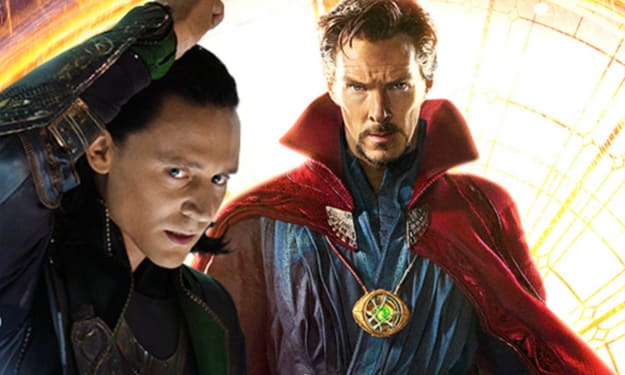



Comments
There are no comments for this story
Be the first to respond and start the conversation.